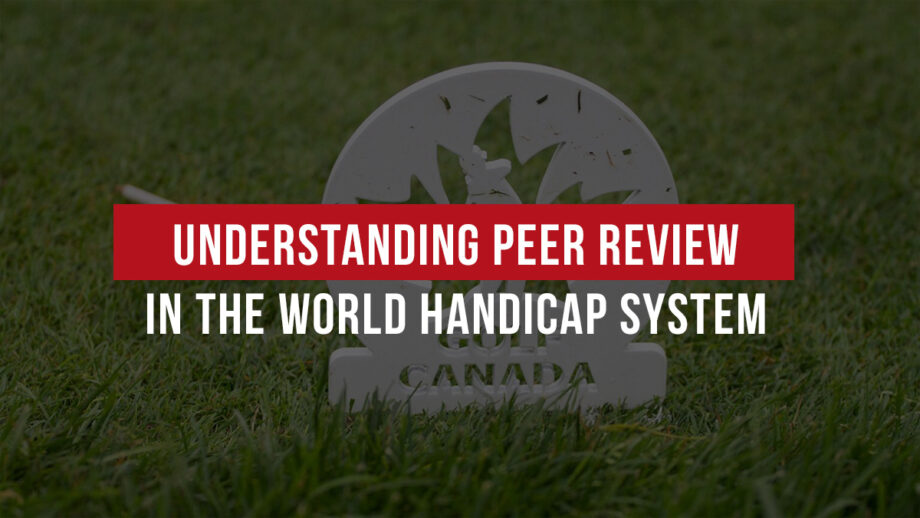One of the core principles of the World Handicap System (WHS) is fairness. For golfers of all skill levels to compete equitably, handicaps must reflect a player’s demonstrated ability as accurately as possible. A key part of achieving this is peer review — a principle that promotes transparency, accountability and integrity in the game.
What is peer review?
In the context of handicapping, peer review is the process by which fellow golfers, club members and club officials can view — and, if necessary, question — the scores a player submits for handicap purposes. It ensures that a player’s scoring record is open to reasonable scrutiny, promoting a culture of trust within the club.
The concept is simple: golf is largely self-regulated. With no referee overseeing every round, players are responsible for recording and attesting to scores in a manner that reflects the true spirit of the game. Peer review provides a safeguard within the self-managed system, allowing the golf community to support the integrity of each player’s scoring record.
What’s expected of golfers?
For peer review to work effectively, golfers are expected to:
- Submit all acceptable scores: This includes both competition and casual rounds played under the Rules of Golf, ensuring the Handicap Index is a true reflection of ability.
- Be truthful and transparent: Players should not manipulate scores to influence their handicap.
- Play by the Rules of Golf: Proper rules knowledge and consistent application ensure scores are fairly comparable across players and courses.
- Support fellow members: If there are irregularities or concerns with a player’s scoring record, golfers are encouraged to raise them constructively through the club’s handicap committee.
- Attest when required: In formal competitions, signing a fellow competitor’s scorecard is a direct form of peer review.
- Understand the Rules of Handicapping: A basic understanding of the WHS can help players know what should or shouldn’t be done on course or when posting a score.
Benefits to the club
Peer review strengthens the golfing community at your club in several ways:
- Promotes fairness: By discouraging manipulation and encouraging accountability, it ensures that competitions are won by ability rather than questionable handicaps.
- Builds trust: Knowing everyone is playing on a level field fosters confidence in the system and the club environment.
- Supports the handicap committee: Peer review provides the committee with valuable feedback, helping them address anomalies or investigate unusual scoring patterns.
- Encourages participation: When members trust the system, they are more likely to take part in competitions and club events.
Benefits to the World Handicap System
On a broader scale, peer review is fundamental to the integrity of the World Handicap System:
- It ensures a player’s Handicap Index is portable and meaningful worldwide.
- It provides a consistent, player-driven safeguard against misuse of the system.
- It maintains the reputation of the WHS as a fair and credible measure of golfing ability.
Golf has long been known as a game of honour. Peer review reinforces that tradition within the modern framework of the World Handicap System. By being open, honest and supportive of one another, golfers not only protect the integrity of their own handicap but also help sustain the fairness of the game at their club and around the world.



